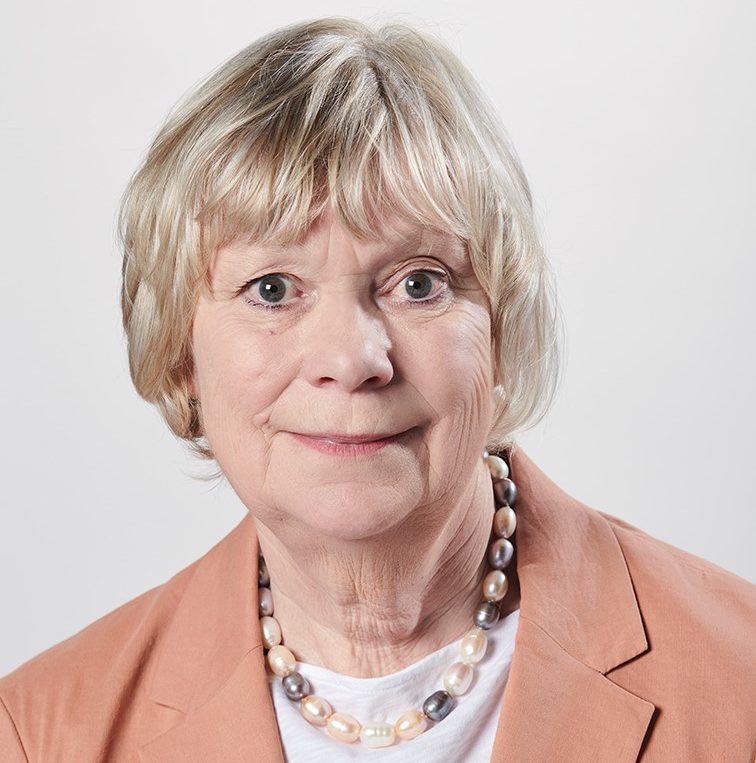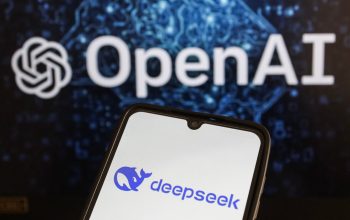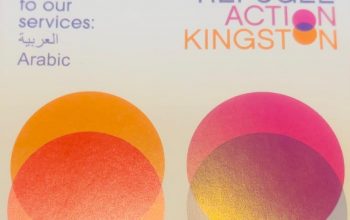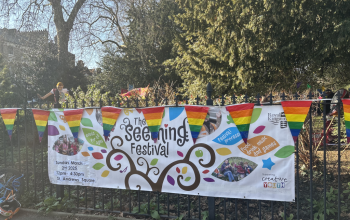“Be less curious about people and more curious about ideas”— simple yet effective advice from Marie Curie, a trailblazer who broke gender stereotypes and went on to become a prolific physicist and discoverer.
Every year, on February 11, we mark the United Nation’s International Day for Women and Girls in Science which provides an opportune moment to look up to role models of today who have promoted scientific enquiry throughout their lives.
Dr Frances (Fran) Balkwill, a Deputy Lead at the Centre for Tumour Microenvironment at Queen Mary University and a distinguished professor and author of children’s books, is one such beacon. She has dedicated her life to studying immunology in the search for new biological treatments for cancer.
At Queen Mary, she runs Centre of the Cell, a biomedical science education centre aimed at providing visitors an interactive and engaging environment to learn about the human body and the latest medical research. It is the first such centre in the world to be located within working biomedical research laboratories since it opened in 2009.
“You want to tell them (the visitors) that science and careers in STEM are open to everyone,” said Dr Balkwill.
Born and brought up in Kingston-upon-Thames, Dr Balkwill credits two people for influencing her interest in science. One was a “really inspirational teacher” at Surbiton High School, Mrs Raume, and the other was her grandfather, a scoutmaster who was “beloved of many boys in Kingston”.
“We lived very close to Richmond Park which was a huge privilege. He would take me to the park and show me birds and introduced me to nature.
“I think the combination of that and a really good biology teaching at my school is what I remember,” she said.
Dr Balkwill feels privileged to have been afforded such experiences and acknowledges the importance of making scientific enquiry more accessible.
It became more apparent to her when she went to a local bookshop in Kingston to buy a children’s book on cells to tell her children what she did at work. She did not find such a book.
This unlocked her creative side as she ventured into writing children’s books in collaboration with illustrator Mic Rolph to make biology a fun, interactive and appealing learning experience at a young age. “For the children’s books, I would have to describe immunology in 3000 words, and it’s tricky. It’s very hard to simplify things,” she said about that experience.
In recognition of her work, she won the 2005 Royal Society Michael Faraday Prize, a distinctive award whose winners include David Attenborough, Susan Greenfield and Brian Cox.
Although she could not continue writing such books regularly, the directors at Queen Mary had taken notice of her venture. When she started her work at the University in 2000, she was approached to co-found and direct Centre of the Cell to enhance public understanding and participation in science.
“We have had a quarter of a million young people participating in our activities since we started,” she said.
She said that working with non-specialist audiences has been very rewarding.
“It gives you that perspective, it gives you what is really important about what you are doing and helps your community.
“It’s a virtuous cycle because the scientists have to communicate with peers and if you do a lot of public engagement, then it improves your communication skills,” she said.
With regards to Centre of the Cell, she said that it is most gratifying to know children, especially young women from East London—who visited the cell 10 or 15 years ago—have come back as students at the University’s medical school.
“It’s lovely to think that we might have played a part in that,” she said.
Dr Balkwill said that in addition to full-time science communicators, they employ medical and dental students as part-time explainers.
“They [visiting children] see young women and men from a whole range of different backgrounds, races, ethnicities who act as role models. And it’s not scary. We try and make it fun and interesting,” she said.
Although it is not practical to think that every child will be inspired to become a scientist or doctor, she said that the fact that they are increasing their side capital is important.
According to Dr Balkwill, science is a great unifier and a global enterprise.
“It’s a common language. And I think that when we work in science or biomedicine, anything that divides us should not divide us,” she said.
Throughout her career, she has always had an encouraging and supportive atmosphere that propelled her to move forward.
Even after giving birth to two children, she was motivated to continue her work even if it meant confronting the odd college who discouraged her from bringing along her six-weeks-old daughter to deliver a talk.
“I can’t invent problems. I just didn’t look for them. I just got on with it, worked hard and tried to be a role model myself because I believed in being able to work and have children and being a scientist.”
For Dr Balkwill, “being less curious about people and more curious about ideas”, has in a sense, always been a way of life.
In 2022, she was named one of the top 100 female scientists in the UK by Research.com which released its first annual ranking of top female scientists in the world.
Passionate about interviewing people to feature their stories and ideas. Currently Features Editor at Kingston Courier.






